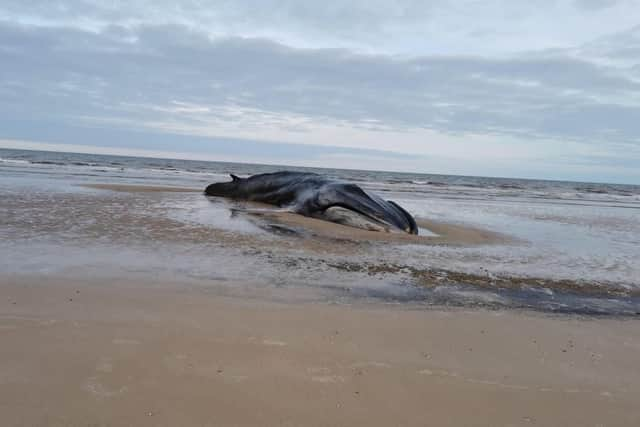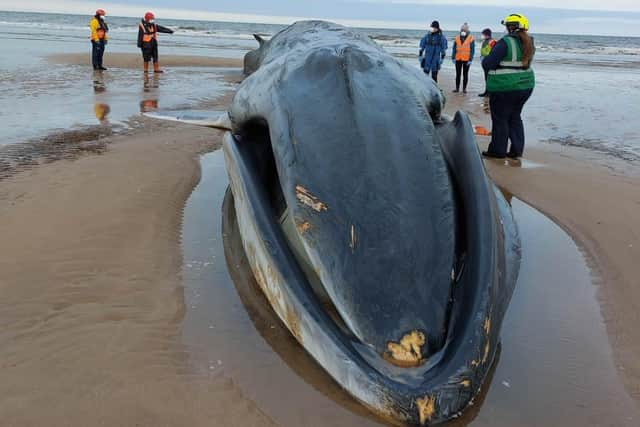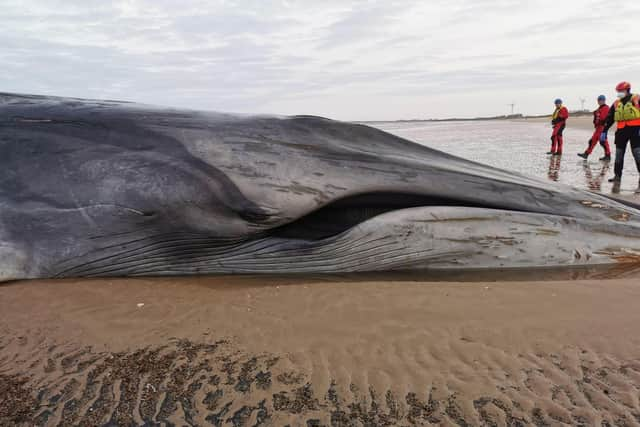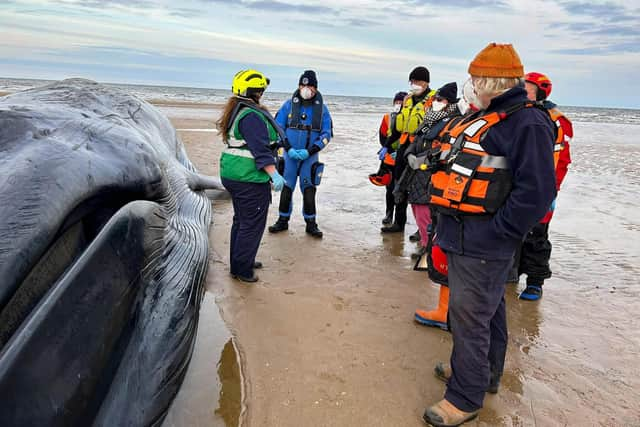Large Fin Whale found dead on sands of Bridlington Bay
and live on Freeview channel 276
The Fin Whale, which is the second largest whale species in the world, measured 17.6m long and weighed approximately 40 tons in weight, which indicates that it was a juvenile or sub-adult.
The whale had been spotted by locals in the shallow water of Bridlington Bay and at 2:30pm the British Divers Marine Life Rescue (BMDLR) were called. Unfortunately it was not possible for them to assist the whale.
Advertisement
Hide AdAdvertisement
Hide AdEmily Mayman is the Yorkshire & Lincolnshire Asst. Coordinator at the BDMLR and is a member of the Large Whale Disentanglement Team.


Ms Mayman said:“BDMLR Medics attended at 2.30pm after we were contacted by a variety of callers, including the local Coastguard.
"Our rescue trailer was also mobilised. Until we know for definite the ID of species, we want to be ready to respond if a whale or dolphin is able to be rescued /refloatable.
“The tide surrounding the animal meant it stayed supported for a short while and also made it inaccessible to the rescue team.
Advertisement
Hide AdAdvertisement
Hide Ad"Had it been a smaller animal, it would still be dangerous to approach while the animal was in deep tide.


“Once the tide receded, the whale remained on the sandbank where it was originally stranded and died shortly afterwards. Large whales stranding sadly means all their weight is resting on their stomach or side, and this quickly crushes their internal organs with their own immense size.
“There are a variety of causes for whales to strand, sometimes it's not possible to ascertain what the reason is. It could be disease, injury or navigational issues.
“It is possible that if the animal was refloated naturally by the tide that it could have survived longer, however this is not the sea for it and I would expect it to strand again imminently, potentially suffering further injury as it restranded.
Advertisement
Hide AdAdvertisement
Hide Ad“Unfortunately we do see whales and dolphins strand in many parts of the UK. It's not common to see Fin whales stranding in the east coast due to the north sea being a relatively shallow body of water and it isn't the ideal feeding place for them.


“There are changes happening in our oceans so it is possible we will see more strandings occuring. We sadly had a Sperm whale strand in Cleethorpes only last month in a similar fashion.
"Prior to this we have had a number of porpoise strandings over the last few years, and of course the mass stranding of sperm whales at Waxholm on Christmas eve two years ago.
“It is always upsetting to see such an incredible animal in distress and pass away.
Advertisement
Hide AdAdvertisement
Hide Ad"Though we have dealt with quite a number of strandings, we will never become accustomed to their passing and our team carries each experience with them.


“Please call BDMLR and keep all people clear of the animal if you spot a whale, dolphin, or seal on a beach."
The BDMLR are also hosting special marine mammal medic training in Bridlington on May 27, for those interested in joining the cause.